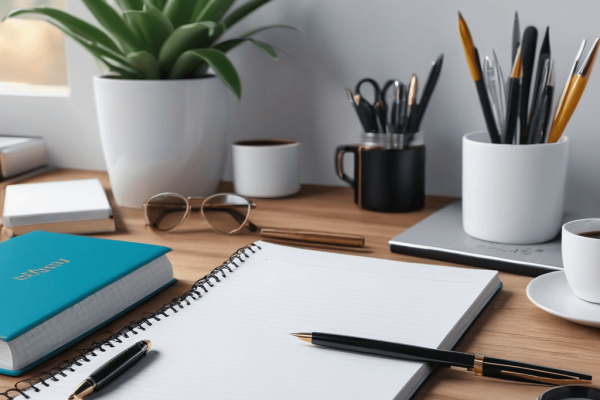Minimalist Practices are not just a trend; they offer profound benefits for those looking to simplify their lives and focus on what truly matters.
In today’s fast-paced world, embracing minimalism can help reduce stress, increase productivity, and lead to a more fulfilling lifestyle.
This article delves into the core principles of minimalist living, illustrating how you can integrate these practices into your everyday routine and transform your space and mindset.
Understanding Minimalist Practices
Understanding Minimalist Practices is essential for anyone looking to simplify their life and focus on the essentials. Minimalism involves a lifestyle choice that encourages individuals to evaluate their possessions and priorities, leading to less clutter and more meaningful experiences. By adopting minimalist practices, individuals can foster greater clarity in their lives, allowing them to concentrate on what brings them joy.
A key aspect of minimalism is identifying what truly matters. This can include defining personal values, passions, and goals. Once these elements are established, it becomes easier to let go of unnecessary items and obligations that no longer serve a purpose. Decluttering your space can lead to a refreshed mindset, as you create an environment conducive to productivity and peace.
Additionally, embracing minimalist practices can enhance mental well-being. Reducing physical clutter often translates to reduced mental clutter. When your surroundings are organized, and your priorities are clear, there’s less distraction. This can lead to improved focus and a greater sense of accomplishment.
In summary, understanding minimalist practices provides a pathway to a more intentional life. It encourages individuals to cultivate appreciation for what they have and make room for the experiences that matter most.
Benefits of Embracing Minimalist Lifestyle
Embracing a minimalist lifestyle offers numerous benefits that can transform your daily living experience.
One of the primary advantages is the reduction of clutter, which leads to a more organized home and mind. This clarity allows you to focus on what truly matters and enhances your overall productivity.
Another significant benefit is the financial freedom that can come from adopting minimalism. By prioritizing needs over wants, individuals can save money by making more intentional purchases. This shift not only alleviates financial stress but also promotes a sense of empowerment as you take control of your spending habits.
Minimalism also encourages a sustainable lifestyle. By consuming less and being more mindful about your choices, you contribute less to environmental waste. This responsible behavior can lead to a reduced carbon footprint and a greater appreciation for the resources available to us.
Additionally, minimalism fosters better relationships. When you’re not constantly focused on material possessions, you can invest more time and energy into building connections with family and friends. The emphasis on experiences over things allows for deeper interactions and meaningful moments.
Last but not least, embracing a minimalist lifestyle can contribute to improved mental health. With fewer distractions and a simplified environment, individuals often experience reduced anxiety and stress levels. This can lead to greater overall happiness and fulfillment in life.
How to Start Implementing Minimalist Practices
To start implementing minimalist practices, begin by assessing your current lifestyle and surroundings. Look around your home and identify items that no longer serve a purpose or bring you joy. This initial step is essential for clearing space both physically and mentally.
Next, set specific goals. Decide what areas of your life you want to simplify, such as reducing clutter in your home or streamlining your schedule. By having clear objectives, you can measure your progress and stay motivated.
Another important step is to practice intentional consumption. Before making a purchase, ask yourself if this item is truly necessary or if it will add value to your life. This habit not only helps reduce unnecessary spending but also curbs impulse buys.
Create a decluttering schedule. Designate time to tackle specific rooms or areas in your home. Breaking the process into manageable tasks makes it less overwhelming and allows for thorough organization.
Incorporate minimalist principles into your daily routine. This can include adopting a simple wardrobe or meal planning to reduce decision fatigue. Streamlining these aspects of life can lead to more free time and a clearer mind.
Finally, embrace the mindset of gratitude and simplicity. Focus on appreciating what you have rather than what you lack. This outlook enables a deeper connection to your possessions and experiences, enriching your minimalist journey.
Common Misconceptions about Minimalism
There are several common misconceptions about minimalism that can prevent people from embracing this lifestyle. One misconception is that minimalism means living with nothing. In reality, minimalism is about making intentional choices regarding what to keep and what to let go of. It is about quality over quantity and focusing on what truly enhances your life.
Another myth is that minimalism is only for the wealthy or those with significant resources. This is false; anyone can adopt minimalism regardless of their financial situation. Minimalism can be a tool for saving money and reducing waste, making it accessible to all.
Some people believe that adopting a minimalist lifestyle will eliminate all joy from their lives. However, minimalism is about creating space for the things that matter most, leading to greater happiness and fulfillment. Letting go of excess can increase appreciation for the essentials.
Additionally, there’s a notion that minimalism is a one-size-fits-all approach. In truth, minimalism looks different for everyone. Each person can define what it means for them based on their values, needs, and circumstances.
Finally, many think future-oriented planning has no place in a minimalist lifestyle. On the contrary, minimalism often encourages better planning and focus on long-term goals. By reducing distractions, individuals can align their lives with their true aspirations.
Minimalist Practices for a Clutter-Free Home
Assess each room for items that are no longer used or needed.
Apply the one-in, one-out rule to maintain balance.
Organize belongings into categories to simplify decision-making.
Use clear bins or labels for better storage and organization.
Schedule regular decluttering sessions to keep your space tidy.
Embrace a simple lifestyle focusing on living with less.
Incorporating Minimalism into Your Daily Routine
Incorporating minimalism into your daily routine can lead to a simpler, more intentional life. Start by identifying the areas where you want to implement minimalism, such as your home, work, or personal habits. Prioritize tasks that align with your values and let go of activities that drain your energy or time.
One effective strategy is to adopt a morning routine that sets a positive tone for the day. Choose a few key activities that make you feel good, like exercise, meditation, or reading. Keeping your routine simple helps reduce decision fatigue and increases focus.
When it comes to your living space, aim for decluttering as a daily habit. Tackle small areas each day instead of overwhelming yourself with a massive cleanup. This gradual process makes it easier to identify what you truly need while letting go of the excess.
In your professional life, practice prioritizing tasks by using the Eisenhower Matrix or a similar method. This tool can help you separate what’s urgent from what’s important, allowing you to devote resources to tasks that genuinely advance your goals.
Additionally, maintain a focus on quality over quantity in your purchases. When shopping, ask yourself if the item aligns with your minimalist values or improves your life in a meaningful way. This approach can help reduce clutter and enhance your enjoyment of what you own.
Finally, embrace mindfulness in your daily actions. Whether you’re eating, walking, or working, being present can help ground you in the moment, fostering appreciation for life’s simple pleasures.
Real-Life Success Stories of Minimalist Living
These success stories illustrate the transformative power of minimalism. A family downsized from a large house to a small apartment, discovering more quality time together while enjoying experiences over possessions.
A young professional embraced minimalism in her career, reducing commitments and stress, leading to improved job satisfaction and a balanced life.
A retiree sold most belongings to travel the world, finding freedom and joy in simple experiences without material clutter.
These stories show that minimalism can transform mindsets and lifestyles, improving mental health and life purpose.
In Conclusion: Embracing Minimalism
Adopting a minimalist lifestyle can significantly enhance your life. By simplifying your space and focusing on what truly matters, you can reduce stress and increase happiness.
Throughout this article, we discussed various minimalist practices that make daily life easier, such as decluttering and intentional consumption. These practices empower you to make more mindful choices.
Real-life success stories illustrate how minimalism can transform not just spaces, but entire perspectives. From families spending quality time together to individuals achieving personal satisfaction, the benefits of minimalism are profound.
As you consider your own journey towards minimalism, remember that it is a personal path. Start small, stay committed, and enjoy the freedom that comes with living simply.


